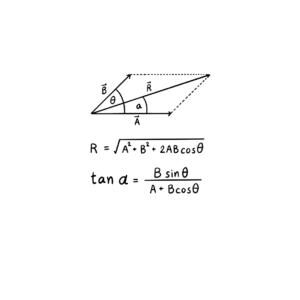Description
A Bachelor of Science (B.Sc) (Honours) in Food and Nutrition is an undergraduate degree that combines the study of food science, nutrition, and health. This program focuses on understanding the relationship between diet, health, and wellness, equipping students with the knowledge and skills to improve individual and community health through nutrition.
Program Overview
Duration: Typically takes 3 to 4 years to complete, depending on the institution and country.
Mode: Courses may be offered in full-time, part-time, or online formats.
Eligibility: Usually requires a high school diploma with a strong background in biology, chemistry, and related sciences.
Core Curriculum
The curriculum for a B.Sc (Honours) in Food and Nutrition generally includes a mix of core courses, practical experiences, and electives, covering essential topics such as:
Fundamentals of Nutrition: Overview of macronutrients and micronutrients, their roles in the body, and dietary needs across different life stages.
Food Science: Study of the chemical, biological, and physical properties of food, including processing, preservation, and safety.
Nutritional Biochemistry: Examination of the biochemical processes that underlie nutrition and metabolism.
Public Health Nutrition: Focus on nutrition across populations, exploring issues like food security, nutrition programs, and community health initiatives.
Clinical Nutrition: Understanding the nutritional needs and dietary management of individuals with specific health conditions.
Food Safety and Sanitation: Principles and practices for ensuring food safety in production, preparation, and handling environments.
Meal Planning and Food Service Management: Skills for planning nutritious and balanced meals and managing food service operations.
Research Methods in Nutrition: Introduction to research design, data collection, and analysis in the field of nutrition and food science.
Nutritional Counseling and Communication: Techniques for effective communication and counseling in dietary practices and lifestyle changes.
Skills Developed
Analytical Skills: Ability to assess dietary practices and nutritional information critically, interpret research findings, and apply them to real-world situations.
Problem-Solving Skills: Capability to design nutrition interventions and programs to address dietary-related health issues.
Practical Skills: Hands-on experience in food preparation, nutritional assessment, and public health initiatives.
Communication Skills: Proficiency in conveying complex nutritional concepts clearly to diverse audiences, including individuals and groups.
Teamwork and Collaboration: Experience working with other professionals in health and nutrition-related fields to develop and implement community programs.
Career Opportunities
Graduates with a B.Sc (Honours) in Food and Nutrition can pursue various careers, including:
Registered Dietitian Nutritionist (RDN): Working in clinical settings to provide dietary recommendations and nutritional care for patients.
Nutrition Consultant: Advising individuals or organizations on nutritional practices and wellness strategies.
Public Health Nutritionist: Developing programs and policies aimed at improving community nutrition and health.
Food Scientist: Engaging in research and development of food products, focusing on quality, safety, and nutrition.
Health Educator: Teaching communities about healthy eating and lifestyle choices to promote overall wellness.
Food Safety Specialist: Ensuring that food products meet safety regulations and standards in food production and service industries.
Research Scientist: Conducting research in academic or government institutions to advance knowledge in nutrition and food science.
Benefits of Pursuing a B.Sc (Honours) in Food and Nutrition
Holistic Understanding: Provides a comprehensive view of how food and nutrition influence health and well-being.
Impactful Career: Graduates play a crucial role in promoting health and preventing disease through nutrition education and interventions.
Diverse Opportunities: The knowledge and skills acquired can lead to various career paths in health, education, research, and food industries.
Additional Considerations
When considering a B.Sc (Honours) in Food and Nutrition:
Accreditation: Ensure the program is accredited by relevant organizations, which is essential for pursuing further certifications or licensure (e.g., becoming a Registered Dietitian).
Internships and Practical Experience: Look for programs that offer hands-on experiences, such as internships in clinical settings, community nutrition programs, or food companies.
Network and Professional Development: Join professional associations in nutrition and food science for networking opportunities and continued education.
If you have specific questions about the program, its courses, or potential career paths in Food and Nutrition, feel free to ask!









